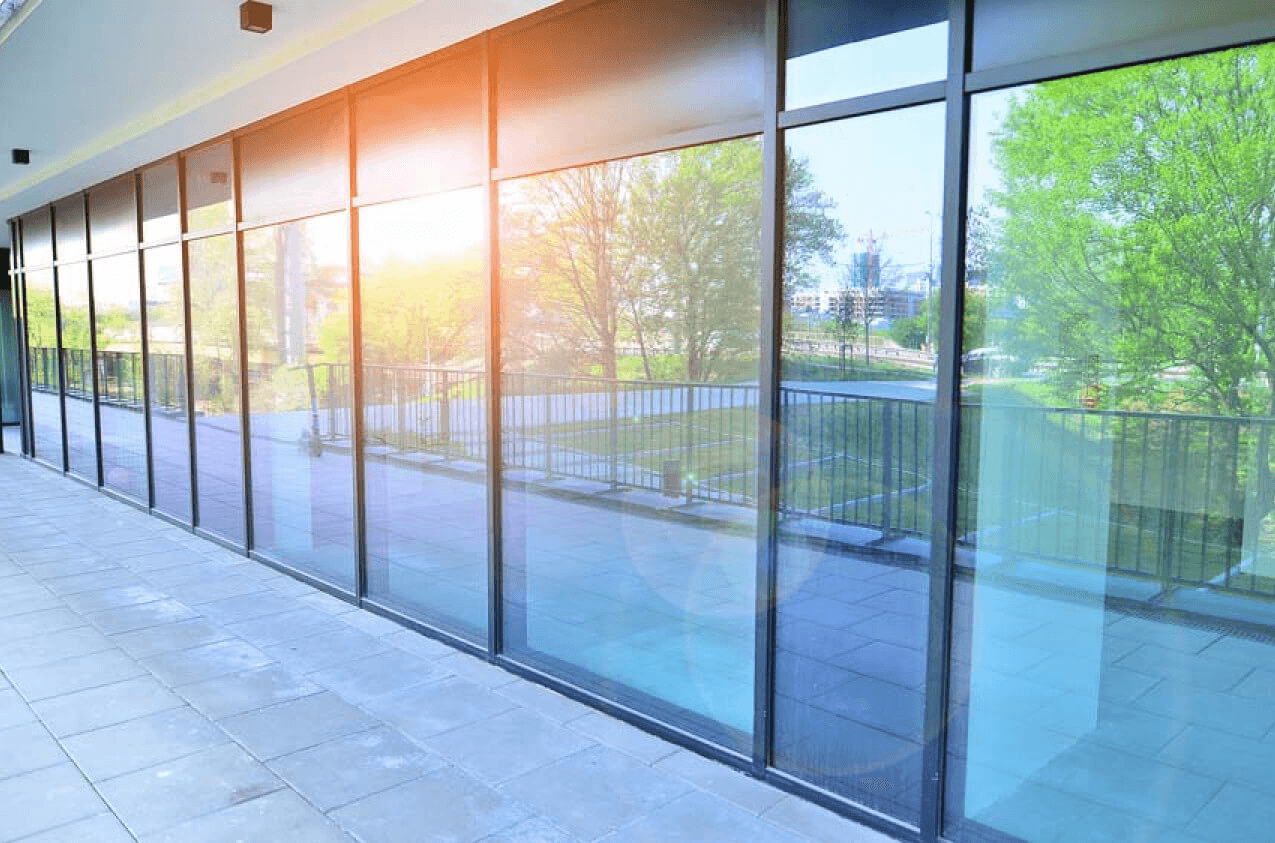How to lease out non-residential premises

An office, warehouse, store, cafe or beauty salon - all of these are commercial real estate. If the object is owned, the owner has the right to dispose of it at his discretion, including renting it out. What you need to consider, what documents to collect, how to profitably rent out non-residential premises and other important information we tell you below.
What to consider when renting out non-residential premises
When planning to lease a commercial space, there are some things to consider. To begin with, the owner must ask the potential tenant what purpose the premises are being rented for? Sanitary, fire and town-planning regulations depend on the type of activity. If the premises are located in a multi-storey building, they will be subject to particularly strict conditions.
The owner should also check with the tenant to see if any remodeling or repairs are needed due to the nature of the use. If repairs are needed, it is important to specify the time frame in which they must be completed. This is specified in the lease, as well as who bears the cost of the repair and construction work.
Another important point - if non-residential premises leases FLP on a single tax, then, according to the legislation of Ukraine, the area of such an object should not exceed 900 square meters.
A commercial property can be leased out only if it is registered and commissioned in accordance with the procedure established by law. The owner cannot rent out non-residential real estate if it is unfinished or not put into operation.
The owner should also consider the fact that the tenant has the right to execute a sublease on the non-residential premises.
What documents are required for leasing out non-residential premises
A commercial object is a real estate that must have an owner, which is confirmed by the relevant documents. When leasing non-residential premises, a potential tenant may ask to see the following papers:
documents of title - sale and purchase agreement, certificate of ownership and others;
technical passport - the actual layout must correspond to the data in the technical passport;
power of attorney - only if the landlord is not the owner of the premises;
landlord's passport.
Another mandatory document for leasing non-residential premises is a lease agreement. The document must be drawn up in writing in two copies. If the term of the agreement exceeds 2 years and 11 months, it must be notarized.
Together with the lease agreement, a property acceptance certificate is signed, which clearly describes everything that is in the premises. If we are talking about a furnished office or a store with trading equipment installed, there is no need for a deed. This document allows you to harmonize the fact that the parties do not have any additional requirements or obligations. A properly executed deed will also help to avoid disputes and conflict situations in the future.
What must be stipulated in a lease agreement for premises
The lease of commercial premises is a transaction in which the owner transfers the property for temporary use to the tenant on the basis of a lease agreement. If the tenant is suitable for the object in terms of its characteristics, it is possible to proceed to the conclusion of the contract. A sample document can be found on the Internet, but it is best to have it drawn up by a lawyerwho will take into account all the necessary nuances.
What should be spelled out in the lease:
The address of the commercial property and a description of the property;
cost of rent of premises - is indicated in the form of price per 1 square meter;
type of document on the basis of which the object belongs to the owner;
The landlord's right to change or index the rent;
procedure for payment of rent;
lease terms;
terms of conclusion and termination of the contract;
responsibility of the parties - the lessor and the lessee;
the possibility of subletting the premises by the tenant and the terms of subletting;
purpose of the leased premises - what the tenant will use the commercial space for;
peculiarities of payment for public utilities - who pays for what, what is the procedure and terms;
repair vacations - if there are no repairs in the premises and they will be done by the tenant at his own expense (in this case it is also important to specify what remains in the premises and what is taken away by the tenants at the end of the lease).
When leasing non-residential premises, the parties shall discuss and fix in writing the liability for late payment of rent and other violations of the terms of the concluded agreement. If the transaction is between legal entities or FLPs, the lease agreement must be signed.
What taxes when leasing out non-residential premises
How much tax must be paid for renting out non-residential premises depends on the legal status of the owner of the object - whether the owner is registered as a business entity or not.
If the owner is not registered as an FLP, but wants to officially rent out a non-residential object as an individual to another individual, he is obliged to declare the income received within the time limits stipulated by law. The landlord must pay the standard personal income tax at the rate of 18% and military tax at the rate of 5%. Such taxes are also paid when renting out an apartment.
The owner of non-residential premises may rent it out to a subject of entrepreneurial activity. In this case, the income will be taxable as in the above example. An important nuance - the tax agent here will be the tenant, i.e. it is he who will be responsible for charging and paying taxes to the budget.
If the owner of the premises is registered as an FLP, the amount of tax will depend on the selected group of single tax payer:
2nd group - single tax is paid at the rate of 20% of the minimum wage monthly (if the minimum wage increases, accordingly, the amount of single tax increases), also additionally paid a military levy of 10% of the minimum wage;
Group 3 - the single tax is paid at the rate of 5% of the received income for VAT non-payers or at the rate of 3% of the received income for VAT payers (+ VAT payment) on a quarterly basis, military levy is also paid at the rate of 1% of the received income.
In addition to the above, there is also a tax on commercial real estate. Its amount depends on the area of the non-residential object and the percentage rate set by the local authorities. This tax is paid once a year.
How to determine the rental value of non-residential premises
Every owner of commercial space wants to maximize the benefits of owning and leasing the property. If you have no experience in leasing a property for a long term, it can be difficult to decide on the rent at first. If you overestimate the cost, you may be looking for clients for a long time, or you may not even find any willing clients at all, especially if there are favorable competitive offers. Too low a price set to rent out non-residential premises quickly may, on the contrary, scare away potential tenants.
To determine the cost of renting non-residential premises, it is best to contact an experienced realtor who has already worked with commercial real estate. The specialist knows the market, constantly encounters similar offers, is oriented in prices, so he or she will be able to study the object and set an adequate rental price.
Several factors influence the amount of rent. The main ones are the area of the non-residential premises, the condition of the object, the availability of repairs and necessary communications, including the Internet, the availability of furniture, equipment and parking, walkability and so on. The cost of rent is strongly influenced by the location. It is impossible to rent an office or a store if it is located in an inconvenient place. For offices, the proximity of public transportation stops and parking plays a role, for stores - walkability, proximity to residential buildings.
Why it is profitable to rent non-residential premises through an agency
In order to quickly and profitably rent out a non-residential object, it is best to immediately contact a real estate agency. Experienced agents will not only advise on all matters, but will also help to determine an adequate rental value, at which the premises will not be idle, i.e. the landlord will be able to constantly receive income from it.
When the premises are idle and do not generate income, the owner is left with a disadvantage. The owner in any case needs to pay commercial real estate tax, maintain the premises in a normal state, and pay utility bills at commercial rates. To avoid constant downtime, it is best to delegate the search for tenants and price determination to a real estate agency.
Finding a tenant through a realtor is quicker, as the agency already has an established client base. Large network companies and other businesses turn to specialists to find suitable commercial premises in a short time. In the staff of the real estate agency "Mayak" work marketers who create effective advertising for non-residential objects, which also significantly increases the chances of quickly finding a tenant.
A realtor can help you set the right rental price and find a tenant as quickly as possible. Agents necessarily check potential tenants to minimize the risk of any problems in a long-term lease. The real estate agency "Mayak" has experienced lawyers who will prepare a competently drafted lease agreement, as they specialize in this niche. A document from qualified specialists will protect the landlord in case of a conflict situation with the tenant.



